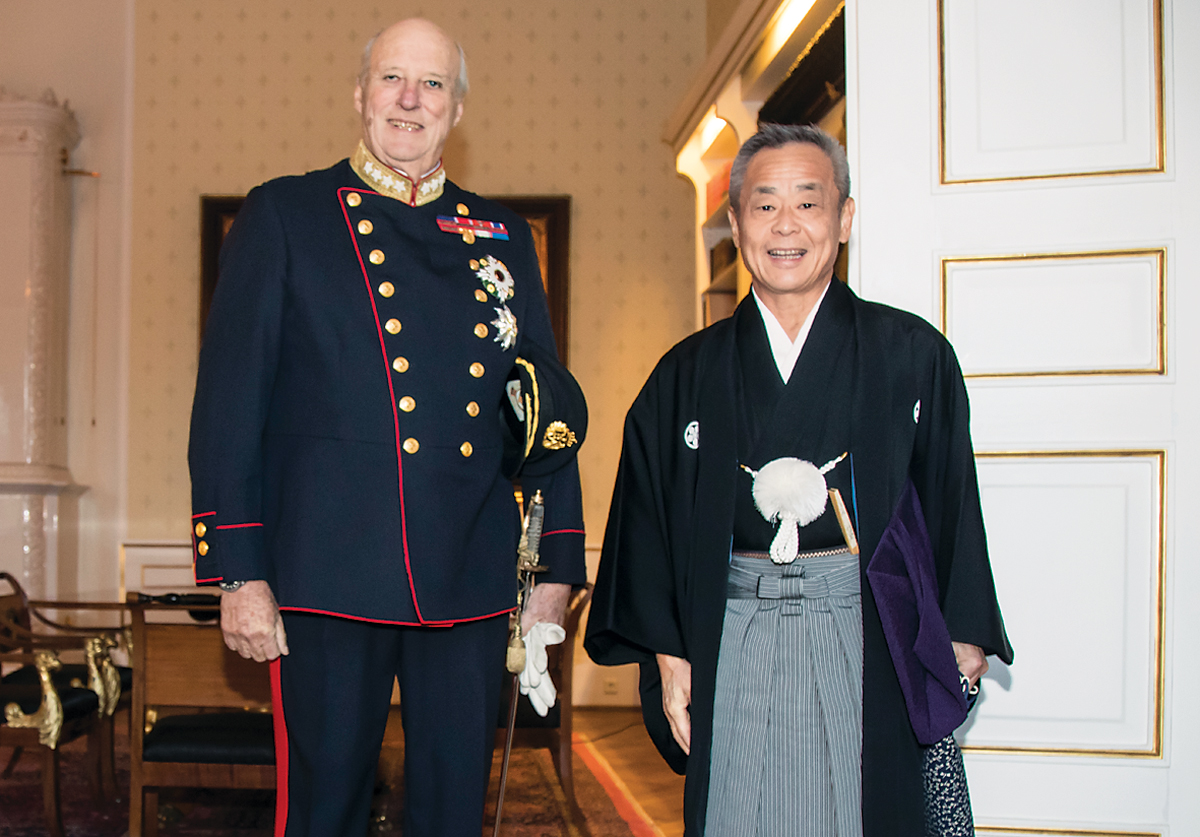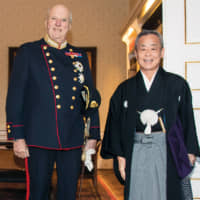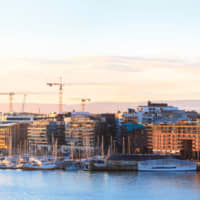Japan and Norway celebrate their 115th anniversary of diplomatic ties this year and the two countries are now closer than ever politically, economically and culturally. “Norway is an old friend of ours that shares the fundamental values of peace, democracy, freedom and so much more,” said Masahiro Tauchi, ambassador of Japan to Norway. “The government of Norway, as well as the king, have been close friends of ours.”
Commercially, there are strong bonds in shipping, seafood, energy and technology between the two countries. “Norway is very technologically advanced when it comes to renewable energy and hydrogen for example, and we are now looking upon Norway’s innovative technology and clean energy with admiration and inspiration,” Tauchi said.
More specifically, there is an increasing interest from Japan in Norway’s hydrogen technology. The Nordic country has been a leader in this field and is looking to share the knowledge with the rest of the world. “Norway should be the first 100 percent green nation with zero emission solutions in all sectors. To achieve this, green hydrogen is an important piece of the puzzle,” Vegard Frihammer, manager and founder of Greenstat AS noted.
“Japan is such a fascinating country,” noted the Minister of Trade and Industry of Norway, Torbjorn Roe Isaksen. “Not only for its history and culture, but also because of its economic and technological advancements,” he said. According to Isaksen, Norway is very interested in strengthening its relationship with Japan given that “Norway is an export nation and Japan is a big market with high purchasing power.”
When it comes to shipping, Norway has a strong maritime cluster with the fifth-largest merchant fleet in the world, while Japan is the largest. “The strong shipping sector of our country is one of the reasons we were able to develop economically at the level we are today,” said Harald Solberg, CEO of the Norwegian Shipowners’ Association noting that shipping cooperation with Japan is strong as they both share a rich maritime history and value sustainable shipping practices, as well as reduction of energy consumption and carbon dioxide emissions.
Another industry that bonds the two economies together is seafood. “Both our countries are maritime nations and seafood is a main part of our diet,” explained Renate Larsen, CEO of the Norwegian Seafood Council. “Norwegian salmon and mackerel are Norway’s best export species to Japan.” Norway introduced salmon in Japan 30 years ago and since then, it has been added to the Japanese cuisine and is an integral part of the Japanese diet, which is creating a huge demand.
The relationship is growing to other areas as well. “There are some fantastic examples of Japanese investment in our country and vice versa,” said Hakon Haugli, CEO of Innovation Norway. “There is a growing need to increase our research-based cooperation and work more on high-tech development, which are areas of key competence for Norway that can benefit Japan,” he explained.
To facilitate this, Isaksen thinks that a bilateral economic partnership agreement between Norway and Japan would be a good way to strengthen its already good relations. “Such an agreement will strengthen our framework for economic cooperation between us,” he said.
Tauchi voiced similar thoughts. “Japan is looking forward to expanding and developing more economic cooperation with Norway,” he said.
“I welcome our Japanese friends to visit Norway and get to know our country’s rich culture. I look forward to even more investment and trade between us,” Isaksen concluded.






